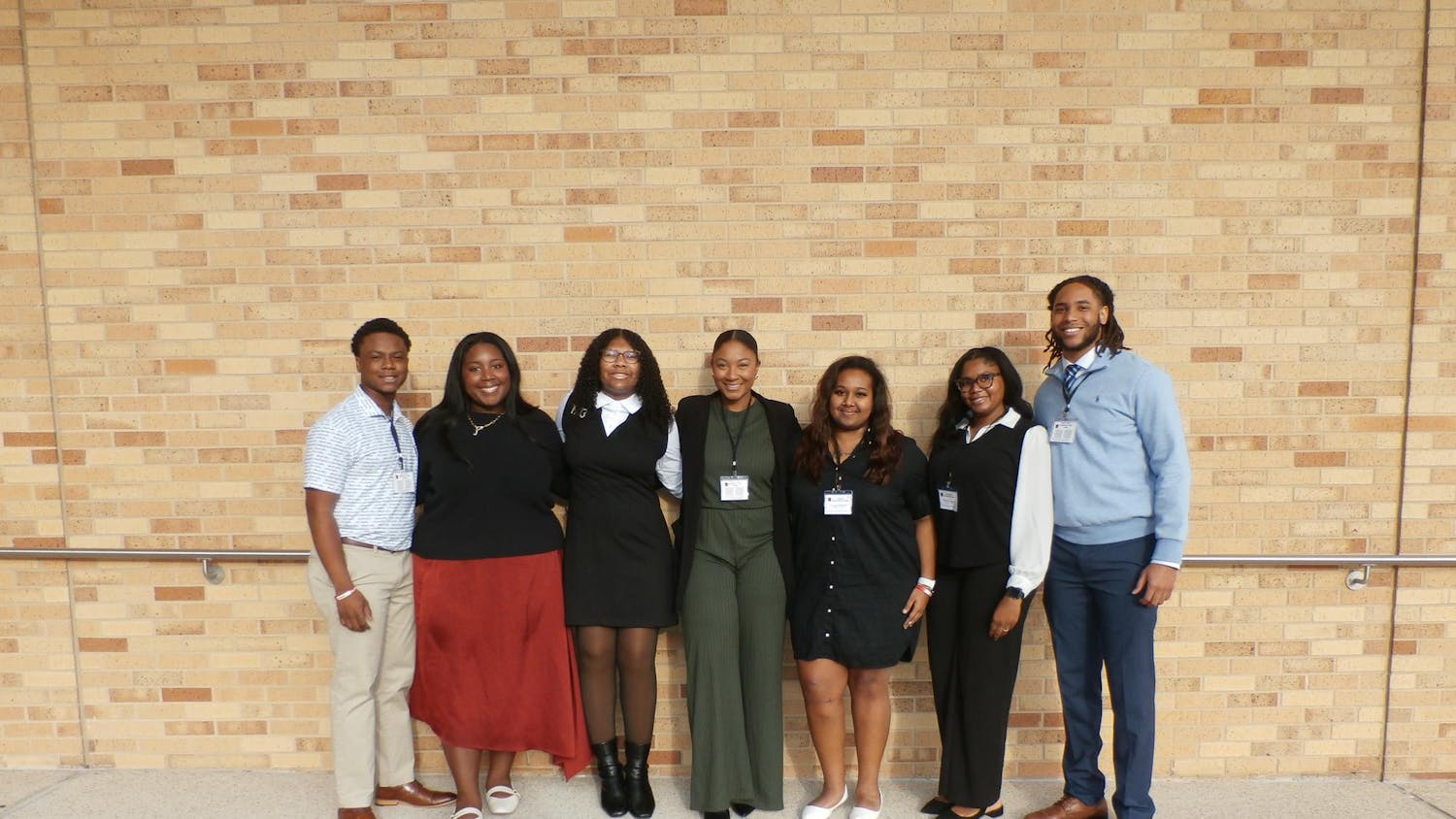Auburn University is still trying to gauge the impact of the "anti-DEI" bill, SB-129, that was signed into law by Governor Kay Ivey.
The amended bill passed in Alabama on March 20, 2024, targeting colleges and universities to restrict divisive concepts. The impact on day-to-day functions and how universities plan to deal with the change remains unknown to the public.
Passed in the House with a 75-28 decision vote and a 25-4 decision vote in the Senate, Ivey signed the bill that took effect on Oct. 1, 2024.
According to the Alabama Legislature, the bill sets the expectations and rules for Alabamians in higher education institution roles, and students, on the prohibition of divisive concepts.
Many consider the bill to be anti diversity, that strips public colleges and universities of federal and state funding for diversity, equity and inclusion, leaving organizations like the Office of Inclusion and Diversity here at Auburn University dissolved.
Jack Hilton, senior in finance serves as the president of the Student Government Association. He gave his opinion on the discussion of the recent implementation of SB-129.
"SGA's mission is serving and promoting the individual student, unifying all that is Auburn. We are committed to being the listening ear to every member of the student body and ensuring this voice is heard and valued. Our team is looking forward to growing closer as a campus community and being attentive to what is facing the everyday needs of our students," Hilton said.
On the topic of how the bill will affect students, Hilton expressed how he believes the university will handle things moving forward.
"Auburn is committed to making students feel welcomed, valued, respected, and engaged from the moment they step foot on campus. We believe diversity is a vital part of this mission and the "doing justly" and "mutual helpfulness" lines of our Creed," Hilton said.
Carleigh Cutbush, senior in psychology and sociology, serves as the vice president of the Sociology club at Auburn University.
She shared her thoughts on the passing of SB-129 and how she feels the university will be affected because of the legislation.
“I believe that Alabama's legislative decision undermines safe spaces and limits students’ access to learning about diversity, equity, and inclusion efforts. It also limits the university’s ability to have critical discussions necessary for preparing students to navigate diverse social and professional environments, ultimately weakening the educational experience,” Cutbush said.
While she did not personally rely on the OID Office’s resources, Cutbush explained how she feels the future of diversity on campus will be different.
“Seeing them [OID] be dismantled makes it feel like the spaces where people like me, a queer woman, can find understanding and support are shrinking. It creates a sense of unease about the future of inclusivity and representation on campus,” Cutbush said.
Bren Wells, president of the International Student Organization, shared her thoughts on the legislation's impact on students and how the university is handling things.
"I believe Auburn University has been doing their best to accommodate students and ensure that their needs are met and catered to. I was saddened to see so many students feel displaced and alone, but I hope they can take solace in the support that has been extended from administration and student organizations," Wells said.
As vice president of the Sociology club, Cutbush shared how the future of clubs and organizations, like hers, will be run now due to SB-129.
“As a sociology club member, I believe the new [anti-] DEI legislation will hinder our ability to address relevant social issues. The restrictions on promoting diversity-related discussions may limit our events focused on social justice and inclusion, impacting our mission to create a supportive environment for all students. This could discourage participation in clubs like ours that aim to foster open dialogue about these topics,” Cutbush said.
Wells explained how she felt clubs would be run, despite recent changes.
"As clubs are student-led operations, they should remain mostly, if not exactly, the same. There is no student censoring at Auburn and administration has been clear about that. Additionally, most services that were provided will remain, and have found new homes in other offices," Wells said.
Josh Deutschendorf, junior in biomedical sciences, serves as the assistant vice president of Diversity, Equity, and Inclusion for the Student Government Association.
Deutschendorf shared his stance on the passing of SB-129, as it relates to universities where students are being affected.
"The DEI legislation that has been passed has only proposed challenges to universities seeking to provide an experience for underrepresented students. Overall, the bill did not do any good for any of the public universities in Alabama," Deutschendorf said.
Discussing the bill's effect on Auburn University, specifically how administration managed the change, Deutschendorf voiced his perspective.
"The DEI legislation brought morale down at Auburn. The faculty in charge of dealing with the legislation did the best they could to preserve a lot of the spaces and services they had already provided while remaining in compliance with the law. I hope that the overarching effects will be minimal," Deutschendorf said.
As someone who utilized COSAM's Office of Diversity, Deutschendorf articulated how the legislation impacted him, individually.
"As a member of the LGBTQ+ community, the bill took away certain spaces on campus I could utilize to find other LGBTQ+ people and overall brought a general sense of unease to my experience at Auburn I had not previously felt," Deutschendorf said.
He explained that he believes clubs will not be affected by this change, as people are working to make sure all the MC squared clubs will be run as they always have. However, he said students at Auburn, directly impacted by the bill, as he was, have had certain reactions to it.
"Most students affected by the bill are upset. They feel marginalized and targeted by this legislation just by existing on Auburn’s campus. I also think they feel upset Auburn chose to disband the OID even if the programs and services will remain the same, just under different offices," Deutschendorf said.
On his stance on diversity's place on college campuses, Deutschendorf conveyed his overall viewpoint.
"Diversity is the basis behind why colleges are so effective at preparing students for the real world. Without it college would not be a place to exchange ideas but a bubble you simply remain in," Deutschendorf said.
As far as the future of college campuses, regarding diversity and inclusion, Deutschendorf presented his ideas.
"To fight laws like SB-129 I believe new and creative solutions to promoting diversity on college campuses will need to be found. There are people dedicated to making sure that every student feels welcome, and I want to stay optimistic that diversity at Auburn and other colleges will only continue to grow even with laws like SB-129," Deutschendorf said.
During the student forum held a day before the bill took effect, members of the Black Student Union, ISO and Student Government Association were present to give clarity on what the bill would mean for the university moving forward.
During the Q&A portion of the student roundtable, Dr. Bobby Woodard, senior vice president for Student Affairs, and Dr. Joffery Gaymon, vice president for enrollment engagement, answered students most pertinent questions.
Eliminating the entirety of the DEI office, rather than rebranding, Woodard said, was to adhere to the law.
"Compliance to the law was the first reason, we just had to make sure we're still providing programs and services to our students, that they need to feel welcome on our campus but also to ensure you graduate," Woodard said.
When asked what specific steps Auburn will take to comply with SB-129, while maintaining a commitment to diversity and inclusion, Woodard offered his insight.
"Here on campus, we're gonna be sure to provide services and programs for all of our students, no matter who they are, to make sure they feel welcome, engaged and valued on our campus, it comes from our president and it's in our new strategic plan," Woodard said.
Do you like this story? The Plainsman doesn't accept money from tuition or student fees, and we don't charge a subscription fee. But you can donate to support The Plainsman.





